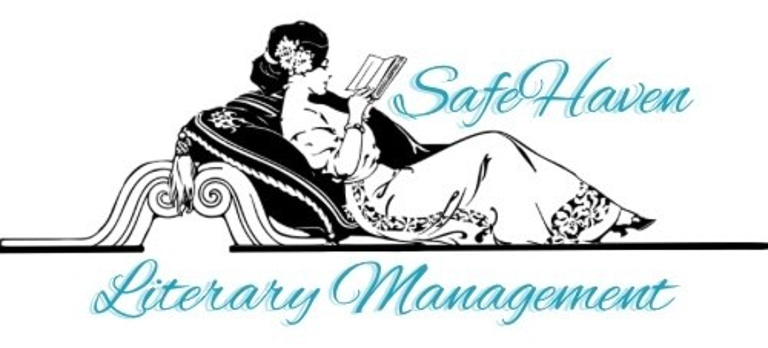In our weekly feature, we will take you behind the scenes with some of the talented authors who have been interviewed on Beyond the Pages by Deb McIlroy & Erin Shea on our YouTube channel. Get a glimpse into their creative process, inspiration, and the stories behind their stories. Stay tuned for exclusive insights and anecdotes from the minds behind some of your favorite books.


What was your motivation for writing your latest book? Can you elaborate on the process behind it?
My latest book, Blood & Vengeance, is the third book in my ‘Jessica Jansen Thriller’ series, and when I first started with these characters in the first book, The Murder Game, I planned to continue to explore their relationship and their adventures for at least 4-5 books. Blood & Vengeance became just a natural extension of the series as it followed a chronological story timeline for after the events in Book #2, Glitz. Glamour. Murder. That is, at the end of G-G-M, my main protagonists have just finished the production of the movie they were helping to produce and write, that was based on the first case they had worked together (The Murder Game). Now that the movie was ‘in the can’ (in Hollywood-speak), they were ready for a nice, relaxing vacation to decompress and enjoy each other’s company. Unfortunately for them, but fortunately for me and my readers, another serial killer case gets dropped in their lap while vacationing in California wine country.
This week, we have the pleasure of chatting with Sonny Hudson, the talented author of the Jessica Jansen Thriller series
Could you describe your writing routine and how you maintain focus and creativity throughout the process?
As I wrote Blood & Vengeance, my writing routine was anything but routine. While writing earlier books I’d had varying levels of discipline and, admittedly, had periods of being a plotter and (many) other periods of being a pantser. After I retired from full time employment and, by all accounts, had a LOT more time on my hands, I found myself being less focused. I retired shortly after ‘Glitz’ was released and as I was starting to write Blood & Vengeance. Whereas before, when I was working full-time and traveling 2-3 times per month I made time for writing, whether on planes, in hotel rooms, or in the evenings after dinner in my home office. Once retired, I found myself easily distracted and able to find a million and one reasons to procrastinate or get distracted – including spending WAY too much time on social media.
Bottom line, with Blood & Vengeance I was a pantser, no question about it, and that really drug the process out. Instead of writing every day, or nearly every day, sometimes there would be days/weeks without a single word written. It was a struggle to pull myself back and get myself focused again every time, but finally the pressures of my own arbitrary timelines and ‘due dates’ I managed to finish it and get it released. I hope to never struggle as much again.
Which themes resonate strongly in your writing, and what draws you to these particular themes?
Strong female protagonists operating in a traditionally male-dominated world of crime solving. My two main characters are female, and during the first book in the series, The Murder Game, they recognized a growing attraction between them, even though neither would have identified as gay. They eventually become a couple and continue as a couple very much in love, as well as partners in crime-solving, as the series continues. I was drawn to this theme because I find strong female lead characters much more interesting than the typical male lead who relies on his strength and brawn, and fighting ability, etc., to carry the action. While female characters can be just as capable and deadly, I feel like their strengths can be more nuanced and less one-dimensional than the stereotypical male character.
What message or impression do you hope to convey to your readers through your work?
I want my readers to appreciate that women can be just as accomplished and capable when it comes to solving crime, and that some people with backgrounds outside of the ‘typical’ for law enforcement may bring a fresh perspective and focus that others may lack. That is certainly the case with Kristyn, who comes from an investigative reporter background. As her character has progressed in the series, and continues to progress in book #4 in the series currently under development, she has found more confidence in speaking up and sharing her opinions in meetings with police, FBI, and other investigators – almost all of whom are men. I also want to convey the role that technology can and often does play in crime, both from the criminal side and the investigation side. This includes technology like the dark web, artificial intelligence, deep fakes, and much more.
What is your approach to crafting character arcs, and how do you ensure that they are relatable to readers?
I try to incorporate some realism into characters’ evolving feelings and relationships over time. For example, in The Murder Game, the two main characters, JJ and Kristyn, develop a growing attraction as they work together and get to know each other, but it goes unsaid and unacknowledged until the very end of the book. There are a lot of lustful looks and thoughts, but that’s as far as it goes. In the second book, Glitz. Glamour. Murder., they’ve fallen in love and are living and working together, and their love and lust are on full display throughout. I often explain to people that JJ and Kristyn are in the ‘honeymoon phase’ and can’t keep their hands off each other. Then, in the third book in the series, ‘Blood & Vengeance’, another 8-12 months have passed, and while they’re still very much in love, it’s not the constant lust and jumping into bed every time they see each other. It’s a more settled and mature relationship, one that reflects how they will (hopefully) be for the long term.
What has been the most surprising or rewarding part of your writing journey so far?
I’m most surprised at how difficult it is to find an agent/publisher that loves my stories as much as I do and is willing to move heaven and earth to work with me and make my books into best sellers or the next hit move franchise. Then again, all writers feel this way about their work, their babies, that they’ve spent months or years striving to make perfect. The whole querying process is absolutely soul crushing. That being said, every time I’m doing a book signing and someone comes up and is genuinely interested in talking to me about my books or has read one or more before and can’t wait to buy the latest, that makes my day. On those occasions, and it happens more often that I would have suspected, when a customer buys all four of my books at once, that feels like winning the lottery.
Buy the book Here
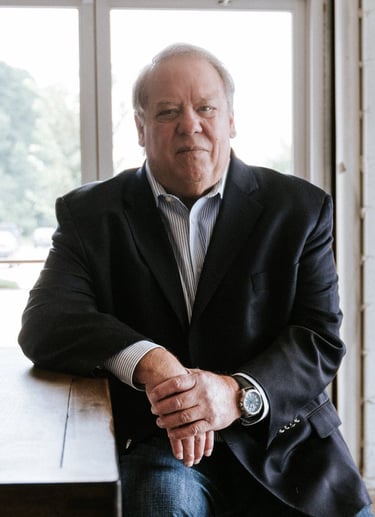

The Murder Game: Artificial Intelligence. Very Real Murders.
A seemingly random killing of an off-duty FBI agent sets off a chain of events that no one could have foreseen, especially FBI Special Agent Jessica (‘JJ’) Jansen. What everyone assumed was an open and shut case soon becomes anything but. Suspecting that the assailant was likely responsible for other killings, she looks to her superiors to create a task force to dig into the ever-widening scope in the case. After her request is denied, she enlists the help of a local investigative reporter, Kristyn Reynolds to divide and conquer. What they uncover is shocking and beyond anything they could have conceived: a group of assassins that developed and use an Artificial Intelligence-based application on the Dark Web to choose the dates, locations, target personas, and weapon of choice for killing random people. And, in a sick twist, they find that this conspiracy involves more than just the group of assassins, but also thousands of online bettors that wager huge sums of money on the outcome of each 'game'.
A tight, fast-paced page-turner, The Murder Game will keep you on the edge of your seat!
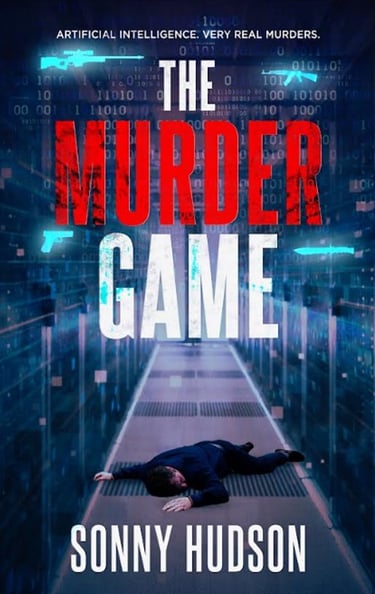

How do you tackle the challenge of pacing in your narratives? What techniques do you use to keep readers engaged?
Pacing can be a challenge and, admittedly, one I often struggle with. I try to force myself to write relatively short chapters, usually no more than 3-5 pages, and each chapter reads like a new ‘scene’ or may be a total change in the flow. That is, as one chapter ends with JJ and Kristyn meeting with the investigative task force, the next chapter opens with a focus on the serial killer they’re pursuing. I also try my best to end each chapter on a bit of a ‘hook’ or cliffhanger that compels the reader to move to the next chapter.
In what ways do you incorporate feedback from your peers or readers into your writing?
I generally work with 5-6 beta readers, and I submit my manuscript to them after I’ve done at least two passes on my own using writing tools like ProWritingAid. I coach my beta readers not to focus on typos and other ‘English teacher’ catches—though I’ll gladly accept those suggestions, too—but instead focus on character development, story flow, and continuity, and even continuity with early books in the series. Once I’ve received their feedback, I will spend time thoroughly reviewing the flagged chapter(s) and making edits, rewrites, etc., as I think appropriate. I definitely don’t make 100% of the suggested changes and edits, but I can honestly say that my beta readers know my books well enough that their comments and suggestions are almost always spot-on.
How do you make your settings come alive in your stories? Are there particular methods you use?
I tend to focus on settings that are attractive and enticing in reality instead of dwelling on e.g., dark, dangerous, and scary settings, whether in urban America or in nature settings. The Murder Game is set primarily in Dallas, a relatively nice, modern city. Glitz. Glamour. Murder. is set in Hollywood and Santa Monica, both considered highly desirable places by most people. Blood & Vengeance takes place in Napa and other top California spots like Carmel/Monterey, Paso Robles, and Santa Barbara: you can’t get much more beautiful and desirable. I’m able to make them come alive because they are places I love and places that I know intimately after many trips there over the years.
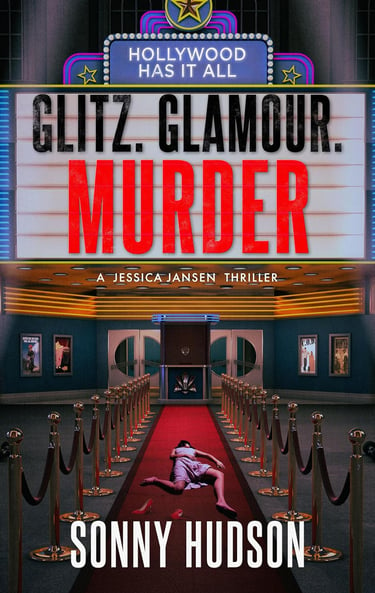

Glitz. Glamour. Murder.: Hollywood Has It All
In this highly anticipated sequel to The Murder Game, former FBI Special Agent Jessica ('JJ') Jansen and her partner, former investigative reporter Kristyn Reynolds, are in L.A. working on the movie based on the crimes associated with the Murder Game and the Slayers. As if learning their roles as part of the production and screenwriting teams on the picture isn't hard and stressful enough, someone soon starts making threats against the movie studio and the production team. Threats escalate to vandalism, and vandalism soon escalates to murder and threats to Kristyn's family. It falls to JJ and Kristyn to work with the FBI, US Marshals, and LAPD to stop this maniac before he can move toward his ultimate goal: killing the two of them as payback for taking down the Murder Game and the Slayers.
Buy the book Here
What are the common misconceptions people have about being a writer that you would like to address?
We are definitely not all rich and famous. While many authors want to secure an agent and publisher and have visions of a multi-book deal with a huge six-figure advance, there are literally thousands of authors that prefer to remain indie/self-published for the freedom and flexibility that it brings. People assume that writers make the most money from their most expensive books (i.e., hardbacks), whereas the reality is often that they make MUCH more (per book) from Kindle copies, even though their priced 75% or more LESS than the cover price of a hardback.
Could you share an experience where you faced significant criticism, and how did it affect your work?
Even though I shouldn’t let it, every single rejection letter I receive when querying strikes me as criticism. I refer to them as ‘you suck’ letters, even though the rejection may have nothing at all to do with the quality of your story or writing. The most stinging criticism I received was from a development editor who found fault with the way I shifted point of view (POV) sometimes multiple times within chapters. It pisses me off more that she’s actually correct, but I will say that I’ve never had a single reader say that they (a) noticed; (b) found anything objectionable or that it made the chapter hard to follow; or (c) knew what the heck ‘3rd party’ versus ‘3rd party omniscient’ means anyway.
What advice would you give aspiring authors when it comes to getting published? Any tips on navigating the publishing landscape?
First of all, just start writing. Then keep writing. Let the writing be the focus, and try to be self-aware enough to realize WHY you’re writing and what you really want out of it. Are you only writing because you want to become the next John Grisham with all the fame and fortune that brings with it? Then plan to invest time in making your manuscript the best it can be, and that means also investing the time AND $$ to work with editors and other experts that can make your book as close to perfect as possible. Align yourself with local writing groups or clubs that can give you the support and coaching, and comradery that you need to make it through the long, lonely struggle of writing an entire book. Ask for help from others, especially as you start new and critical tasks like identifying the right agents to query and crafting a killer query letter. And above all else, if you don’t hit paydirt and get that bazillion-dollar book deal, by all means, consider taking the book the indie route to get it out there and build your audience and brand, then GET BACK TO WRITING YOUR NEXT BOOK. Oh, and drink lots of great red wine to soothe your mind and soul.
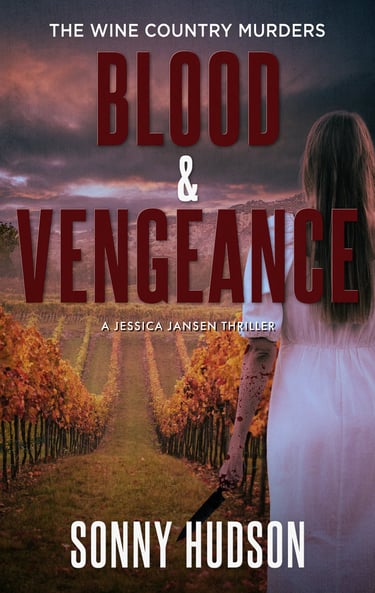

Buy the book Here
